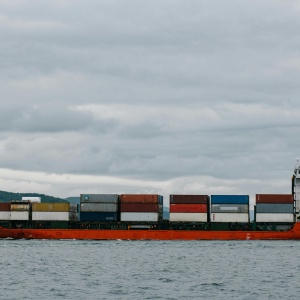
This report by NGO Feedback argues that current EU agri-trade policies do not reflect the urgent imperative of transforming our food system. It presents case studies of three commodities (soy, rapeseed, and beef) to demonstrate how EU agri-trade policies are at odds with EU policy objectives in climate change, public health, food security and farmers' livelihoods, global equity and animal welfare.
Publisher's summary
We live in a time of polycrisis deeply intertwined with how we produce and consume food. As one of the largest global markets and one of the world’s most outward-oriented economies, the European Union (EU) plays a pivotal role in influencing global food trade through its consumption and production patterns. In 2021, a review of the EU’s trade policy by the European Commission asserted that it “should use all the tools at its disposal to support social fairness and environmental sustainability”
The 2024 Strategic Dialogue on the Future of EU Agriculture has also highlighted the need to align agri-trade policy with sustainability. However, current EU agri-trade policies do not reflect the urgent imperative of transforming our food system. This report presents case studies of three internationally traded protein commodities (soy, rapeseed, and beef) to demonstrate how EU agri-trade policies are at odds with EU policy objectives in five key areas:
1. The climate crisis: by supporting a livestock sector that contributes to deforestation, biodiversity loss, and greenhouse gas (GHG) emissions. 2. Public health: by enabling meat- and dairy-heavy diets that harm human health while importing residues of dangerous pesticides, antibiotics, and genetically modified organisms (GMOs).
3. Food security and EU farmers’ livelihoods: by hampering the ability of EU farmers to get a fair price for their food while reducing the amount of food available for human, rather than animal, consumption.
4. Global equity: by maintaining unfair and neocolonial double standards concerning the use of pesticides in third countries and perpetuating land-grabbing from local and Indigenous communities.
5. Animal welfare: by accepting the meat import of animals subject to less stringent animal welfare and veterinary standards than the EU would require. As the EU prepares to mark the fifth anniversary of its landmark Farm to Fork strategy and enters a new legislative period from 2024-2029, the time to act on putting the EU’s trade policy at the service of sustainability is now. A business-as-usual approach will make it impossible for the EU to achieve its sustainability goals
2 . Against this backdrop, this briefing reaffirms the need for a realignment of EU agri-trade policy to enable the urgent transformation of our food system in line with key climate, public health, global equity, food security, and livelihood objectives.
See more here.







Post a new comment »